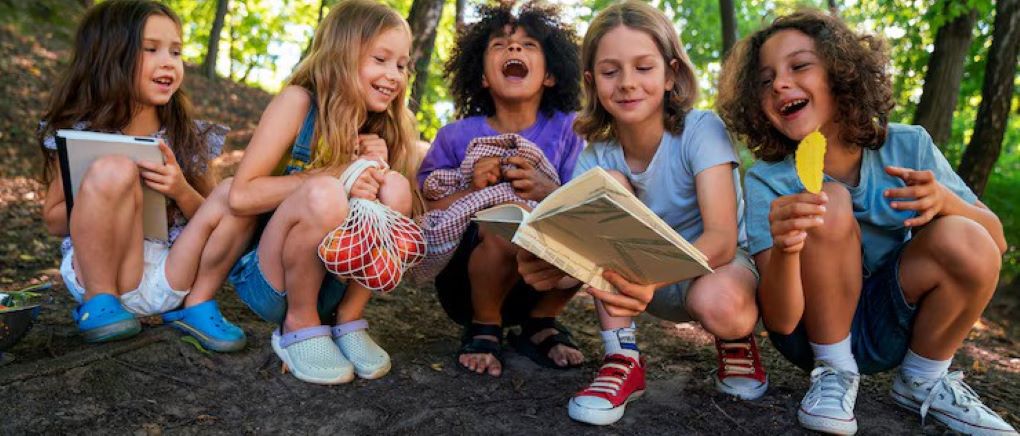Blog Categories
Search Blog
Blog Categories
Coping With Summertime Stresses: Separation Anxiety and Camp Basics
To many caregivers, summer camp sounds like a great solution: kids having fun while caregivers work through long summer days. The idea of being around peers, engaging in fun activities, and taking a break from classroom learning can be so exciting! However, for some kids, emotions can be mixed. Camp, whether it’s a community day program or sleepaway adventure, means new people, new routines, and time away from the comforts of home. For kids who go to sleepover camp, it also means extended periods away from the people they rely on for security.
There are so many benefits of the camp experience, and as caregivers, we want to encourage the opportunity. At the same time, it is important to recognize and validate fears and worries. As always, connection is key, but connection does not mean accommodating and giving in. So where to begin?
Step 1:
Let’s start with a quick review of anxiety basics:
- Anxiety isn’t about true danger; it’s a false alarm. These alarms often go off when we’re unsure of what to expect or when something feels unfamiliar.
- Whether the threat is real or imagined, our brain reacts the same way: it sends out signals that trigger our body’s fight, flight, or freeze response.
- When this response is activated, our bodies react automatically, without our control. Some common physical symptoms include:
- Butterflies in the stomach
- Feeling dizzy or lightheaded
- Muscle tension
- Feeling hot or sweaty
- Dry mouth
- Shakiness
Recognizing these signs is the first step. Once we can name it, “That’s anxiety!”, we can start to use tools and strategies to manage it. We can’t really problem solve or do anything until we are calm and not in the fight-flight-freeze state.
You can check out this link for relaxation and mindfulness strategies (About Kids Health – Mental health) or see some of our favorites below:
- Box breathing. So simple, but so important. Practice slow, deep breaths in through your nose and out through your mouth. Visualize a box in your mind as you count in for 5 and out for 5.
- Visualization. Use your five senses to focus on your surroundings. What can you hear, see, touch, taste, and smell?
- Muscle relaxation. Tighten your muscles, then relax them. Think about a spaghetti noodle before and after it is cooked.
Step 2:
Let’s connect.
Be intentional about your approach. Don’t wait until the last minute. Be mindful about how you want to set up the camp experience, the conversations you have, and what expectations you set.
1. Getting ready. Provide control and empowerment.
- The more kids understand what is happening and have some control over their choices, the less anxious they will feel. Involve them in choices wherever possible. Take them to pick out a new hat and sunscreen. Have them decide what they will do on the bus to make it more fun. For sleepover camp, can they pick out some new bedding or stationery?
- Can they slowly start to get use to the experience in small steps. Can you do a drive by of the camp grounds, or even get a tour beforehand? For sleepover camp, can they practice in advance with an overnight at a friend’s house?
2. Conversations about camp.
- Avoid statements like “don’t worry” or “camp is awesome”. Acknowledge concerns. Make simple statements showing you have heard what your kids are saying. Hold back attempts to problem solve. Stick with restating concerns and leave it there. When you are doing this, you are opening the door for them to share more. Maybe at some point they will ask for your advice, but maybe they just want a listening ear so that they can figure it out for themselves.
- If they ask for advice, can you share your own experiences? What kinds of feelings do you remember having about summer camp? Keep it simple, but be honest. Talk about difficult feelings. You can also share how you got through those feelings. What helped you overcome your own difficult moments?
- Think about how you are managing your own caregiver anxiety. Quiet voices in your head that are telling you what could go wrong. Find a coping statement that focuses on strengths. Show calm confidence in your kid’s abilities. Remind yourself of the concept of antifragility, as discussed by psychologist Dr. Jonathan Haidt. It’s the idea that children, like muscles, grow stronger when exposed to manageable challenges and stressors. Avoiding all discomfort can prevent them from building the resilience they need to thrive.
Summer camp can bring excitement and anxiety for kids and caregivers. Our job isn’t to eliminate every worry, but to support kids through it with calm, connection, and confidence.
By helping them prepare, naming what they’re feeling, and trusting in their resilience, we turn camp into more than just a fun break; it becomes a chance for growth, independence, and lasting memories.





